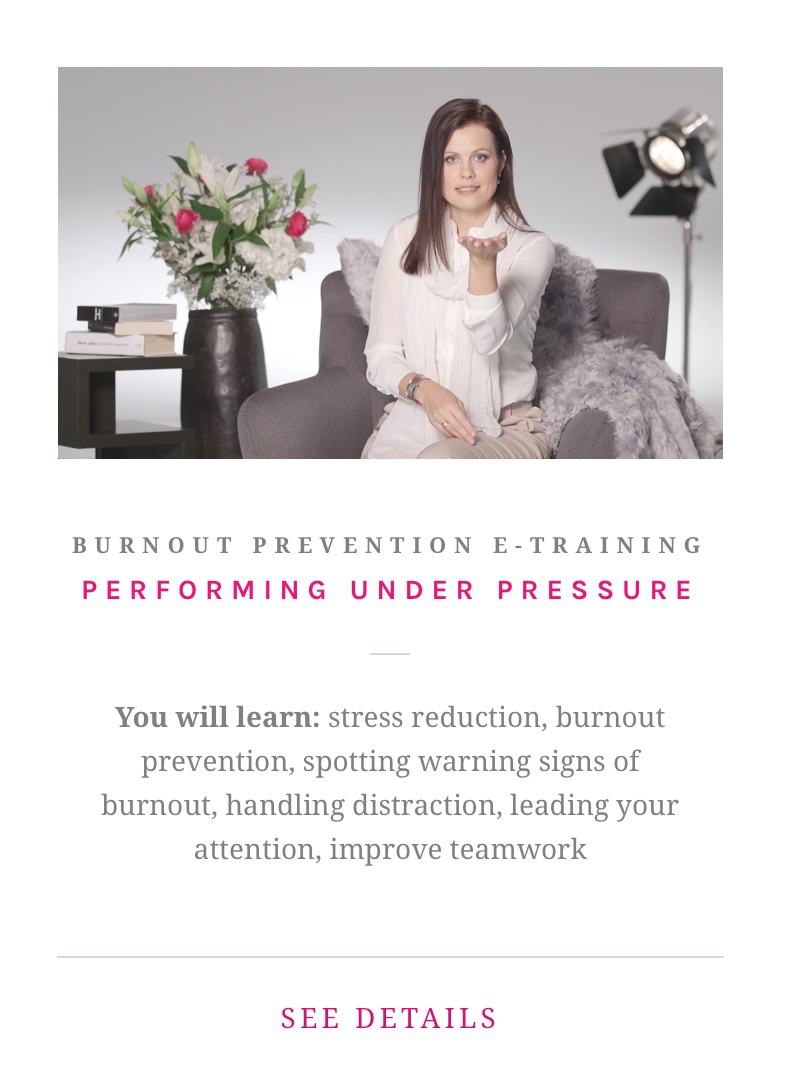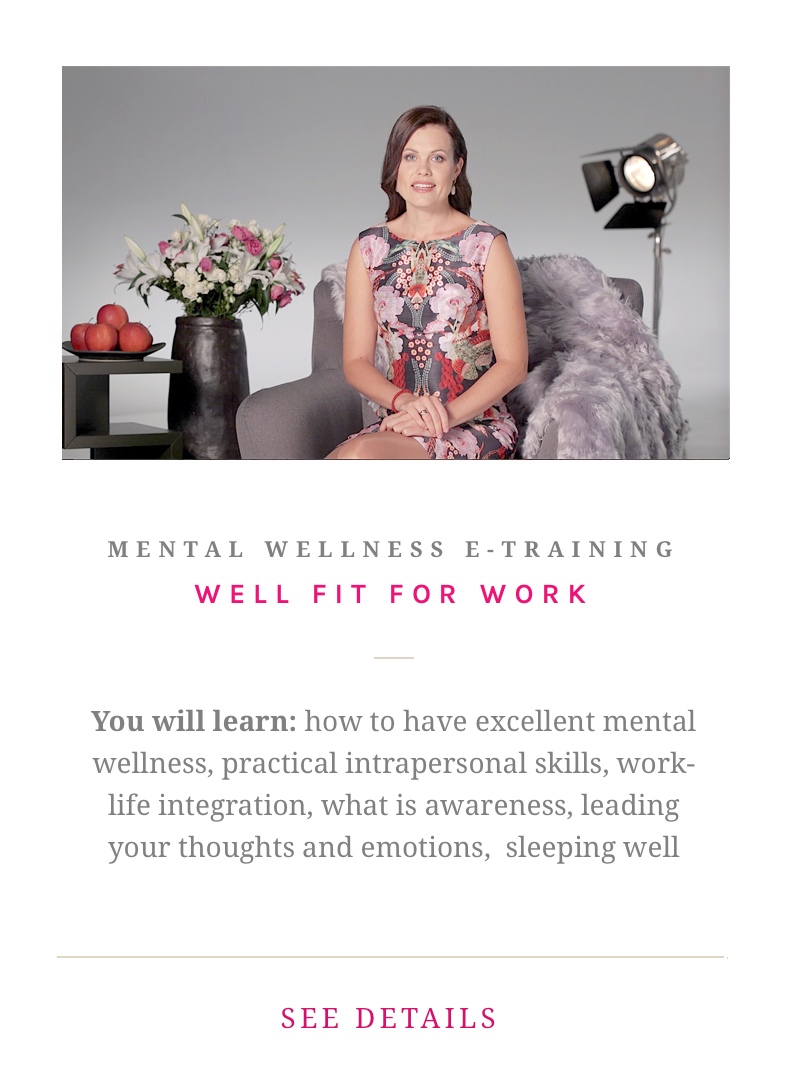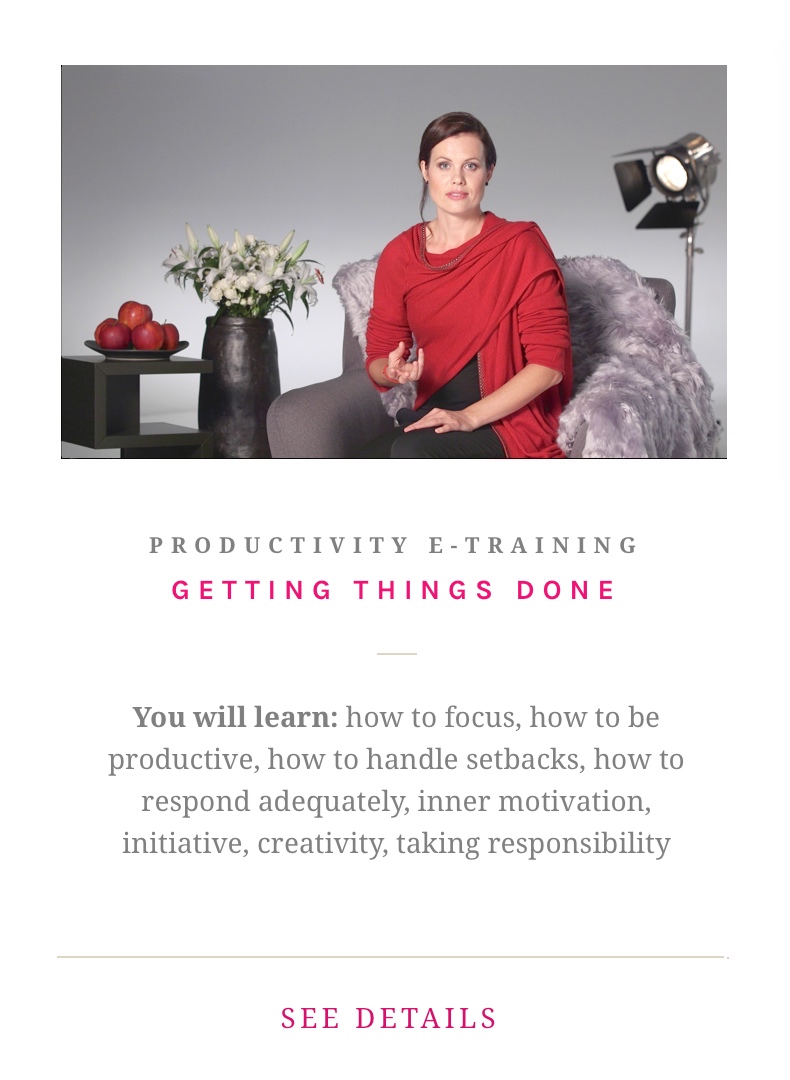Today, for most of us, our work is often constantly connected and highly demanding. Many workplaces have developed outer motivation-based work cultures where stress and the risk of burnout are widespread. This hinders good business results and leads to losing people to different health issues.
The problem isn't about stressors, it is the lack of resilience to deal with different stressors that leads to stress.
What is Resilience?
Resilience is our intrapersonal ability to cope with both external and inner stressors. Training our minds proactively, while well, can improve resilience.
Since the intensity of work isn't likely to become slower, it has become critical to build resilience by training intrapersonal skills. Such self-leadership skills allow you and your team to solve your challenges and cope with different stressors.
Before you strive for success, you need to learn how to become resilient to deal with stressors and overcome setbacks.
Stressors are not the same as stress. A stressor is just something that has the potential to trigger inner reactivity in your mind or provoke a negative physical effect on the body.
What causes stress is your inner reactivity, not the fact that there is a possible trigger. It is subconscious automatic inner reactivity within your mind that causes worry, stress and anxiousness.
When the work environment and work relations feel psychologically unsafe people become frozen and afraid.
Feeling safe to fail and learning from failures allows people to thrive. A team of calm-minded people who have excellent mental wellness can build a sustainable and safe work culture where initiative and responsibility are valued. Learning is a must for innovation and finding efficient ways to work.
All our professional skills can thrive when we lead processes within our minds with ease. But for this, people need to have intrapersonal education as our schools teach nothing about leading our inner domain or securing mental wellness proactively.
Acquiring intrapersonal skills to stay calm in a challenging situation allows you to deal with setbacks and thrive. Your strength is learning from failure.
When you can turn the lesson from initial failure into something that allows you to move on, you become more resilient. However, for that to be possible, you need to stay calm and stress-free.
There is no point in burning yourself out over things that aren't under your control. The reality is that most of the things around us aren't under our control. The only thing you fully can control is what happens within your mind.
Accepting the lack of external control and improving the inner ability to respond adequately, instead of reacting automatically, is what delivers you success in the long run.

Overnight success is primarily a myth
A well-deserved success is based on failing and re-learning while keeping your inner calmness. It is your calm mind and willingness to learn that allows keeping at it, while others quit.
Quitting is the only thing that makes failure permanent.
Research points out that resilience is based on your attitude and behavior. When you can remove your (often destructive and unsupportive) automatic inner reactivity, your behavior becomes realistic and constructive. You become grounded in the present moment and start noticing opportunities behind the challenges you face.
WHAT IMPROVES RESILIENCE?
The main factor that improves resilience is inner calmness.
Inner peace allows you to manage your emotions and thoughts at will and your ability to manage anxiousness and stress. Let's take a look at how to arrive at a calm state that supports work.
Workplace safety should include a psychosocially safe environment where it is OK to speak up and fail. Also, a friendly work culture and kindness formulate a social support system when the ride becomes tough for some people. So resilience can be supported by external components as well. However, the key here is our healthy mind.
Intrapersonal skills support resilience
As all intrapersonal skills are easily learnable and associated with resilience, you and your team can learn to be more resilient.
Enhancing resilience and inner sustainability becomes doable when we understand and manage the factors that cause us to feel so overwhelmed and stressed at work. While addressing external factors matters, the key here is managing each individual's inner processes.
Reducing stress effectively always comes down to removing your own inner reactivity. In that manner, everyone needs individual interpersonal skills. Why?
All skills are personal. Skills aren't the same as knowledge. Skills are always practical and, when used, will make all the difference in real-life situations.

RESILIENCE ALLOWS ONE TO DEAL WITH COMPLEXITY
Today's work culture and challenges include increasing levels of complexity.
Grown technical complexity, overregulation, economic turmoil and financial crises (such as we see unfolding) influence businesses. In the coming years, the overall picture isn't pretty. Due to excess currency printing and inflation, it will be messy for most of us. However, with every crisis enters an opportunity. It is up to you and your team to be resilient and mentally fit enough to identify that opportunity and benefit from it.
Being hyperconnected and constantly reacting to external problems can be extremely taxing. If you have followed our blogs, you are familiar that stress and burnout are on the rise.
Hundreds of studies point out that more than 70% of employees experience stress at work. Some of those studies point up that it is only 1 in 10 employees are lucky enough to live without stress.
As 9 out 10 are stressed, what is your action plan?
The rising levels of stress should be a cause for concern for both employers and employees, as it leads to employee turnover and retention challenges. However, that is not all, as stress also significantly impacts individual well-being.
Failing to nip stress in the bud always comes down to a lack of intrapersonal skills
We can close our eyes to this fact, but when we understand our minds we learn that it is an absolute truth.
There is a direct and adverse relationship between stress, wellness and employee engagement, as we wrote recently. When stress becomes chronic, it will lead to burnout and chronic disease. The only question is will this happen sooner or later?
What makes the difference is that to a resilient person, it all happens later. However, to a person with superb awareness-based intrapersonal skills, such a downward path becomes fully preventable.
Let's assume that you are an average person who hasn't had mental wellness training and lacks a good understanding of your inner processes. What it means is – you can't observe what is happening within your mind as your attention is mostly on external objects.
What happens, as a result, is that you'll fail to notice the early warning signs of stress which leads to burnout. Burnout again leads to depression and mental as well as physical health issues. The paradox is all this happens slowly for an untrained mind to spot.
How to understand burnout?
One easy way to understand burnout is that is a lagging indicator of chronic stress. When stress is high for a sustained period as resilience and intrapersonal skills are missing, burnout becomes inevitable.
How can we develop resilience and prevent chronic stress while also keeping up with constantly increasing demands, complexity and change?
The short answer is by learning and applying intrapersonal skills.
When you understand your inner domain, you can use your awareness and observe what happens within your own mind. Every person on this planet is capable of learning this. However, as our educational curricula lack intrapersonal education, most of us currently fail big time. We just don't have the skills to keep our mental wellness, especially under extreme (external) pressure.
Over the last 5-years in the market, we have seen that our online training programs effectively lower employee stress while improving resiliency and employee engagement.
Your conscious investment in the proactive mental wellness approach has the power to enhance employee well-being and your team's performance.
What is your benefit from intrapersonal skills?
When you learn intrapersonal skills, you discover how to keep your focus and thus become effective in monotasking. As we have explained multitasking or context switching is one of the root problems and a hyperconnected lifestyle promotes this wrong habit.
When, instead of letting your mind run wild on the monkey mind regime, you create dedicated times in the day to do specific work-related activities by effective monotasking, you will get things done.
When you create within your own mind an optimal set of conditions that allow you to effectively analyze information, you become capable of making high-quality decisions. Of course, provided, you also remember your goal(s) and keep your focus.
Intrapersonal skills are more than stress removal or mental wellness securing skills.
Intrapersonal skills support your professional skills and allow you to thrive
When you know how your mind is built, you can lead it. For example, you learn that usually, our mental focus cycles last about 90-120 minutes. We can use those cycles to a maximum and then take a break.
Conscious breaks refresh your mind and body. After 10 or 15 minutes you can return to your task and continue your work by experiencing another similar effective work cycle.
If you sleep well, eat well, move your body, and have a well-integrated work and life that is according to your specific lifestyle preferences you can thrive.
Intrapersonal skills support us 24/7. Do you have them at your disposal?
Intrapersonal skills strengthen our mental clarity, creativity and focus, ultimately growing our capacity for resilience.
One of the greatest side-effects of excellent intrapersonal skills is that you become more aware of your inner domain and the location of your own awareness. You are no longer a prisoner of your monkey mind and don't depend on external stimuli.
Intrapersonal skills secure your resilience as a trained mind is fit to deal with any external pressures without suffering from stress and burnout.
The long-term payoff of awareness-based intrapersonal skills is that you can preserve your energy and use it in the right amount during the right part of the day. Also, intrapersonal skills allow you to remove inner reactivity and thus live a more stress-free life.
The side benefit of good intrapersonal skills is preventing burnout and mental health problems. Our self-leadership is what secures your resilience. No external dependency on pills, apps or gadgets. You become your own master, take initiative and personal responsibility.
Developing mental agility and grit is up to you. It isn't up to society or anyone else. However, as we typically lack intrapersonal education, workplaces can here become educators.
The win of the employer from mind health training is improved employee engagement and initiative. Employee benefit realistically is a better quality of life. Investing wisely in intrapersonal education has a tenfold ROI, as we have proved before.
Conclusion
Now you know that it is possible to learn intrapersonal skills. Those applicable inner skills have the potential to change unhealthy inner active patterns into healthy responsive ones, thus enabling resilience.
Lowering your health care costs, paving the path to higher productivity and improved employee engagement, plus seeing lower absenteeism and decreased turnover is made easy for you on this digital mental wellness gym.
|
Just choose your training from the above, those come at affordable prices and allow personal self-evaluation before and after the training.
What you can objectively measure, you can change more easily than things that remain abstract. Specific skills are always measurable and bring consistent results. Every employer comprehends this already. What is new and worth noticing is that training intrapersonal skills always improve professional skills.
By enlightening your bright minds with practical intrapersonal skills, you too stand to benefit tremendously from a more resilient team.





